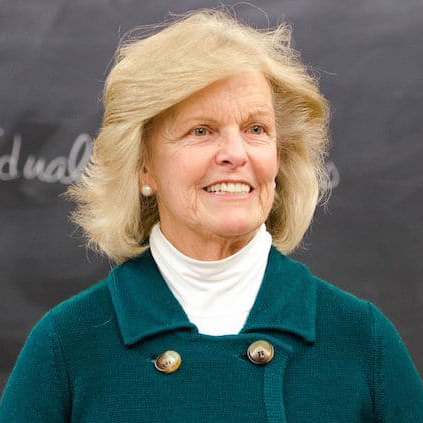In many of California’s largest cities, pets are replacing people. In a recent article, “San Francisco Asks: Where Have All the Children Gone?,” the New York Times reports that the City by the Bay has the lowest percentage of children of any of the largest 100 cities in America. The article introduces a young San Francisco couple: “in a compact studio apartment on the fringes of the Castro district where a young couple live with their demanding 7-year-old whom they dote on and take everywhere: a Scottish terrier named Olive.” Last year the percentage of children in San Francisco fell to 13 percent—even lower than New York City with 21 percent.
For an increasing number of couples, pets have moved in to take the place of the children they have chosen not to have. Pampered pets are achieving ever greater status—and protections. California is just the most recent state to provide legal protections to pets involved in divorce custody cases by allowing courts to decide their “best interests.” Pets can even have their own court-appointed attorneys.
According to research at Michigan State University’s College of Law, 32 states, Washington, DC, and Puerto Rico have enacted legislation that includes provisions for pets in protective orders in domestic violence cases. The Animal Legal Defense Fund, which just released its 12th annual report ranking the strength of each state’s animal protection laws, reveals that more states are granting legal protections to pets.
Orthodox. Faithful. Free.
Sign up to get Crisis articles delivered to your inbox daily
The highest-ranked states mandate strong standards of care for animals, and civil immunity for veterinarians who report animal cruelty or neglect. Twenty-two states have instituted statewide bans on breed-specific legislation that prohibits municipalities from outlawing certain dogs based on breed alone. Illinois, Oregon, California, Maine, and Rhode Island are identified as the “best five” for animals, while North Dakota, Utah, Wyoming, Iowa, and Kentucky are listed as the “worst five” in terms of offering protections to animals. Illinois is lauded as having the most comprehensive state-mandated “standards of basic care” in the nation. In Illinois, if a veterinarian—or any concerned citizen—believes that a pet owner is not providing the highest standard of care, the owner can be prosecuted and the pet can be removed from the owner’s care.
For those of us who view our pets as valued members of the family, strengthening standards of care for animals and expanding their protections seems like an idea whose time has come. There have been horrific stories of abuse against animals and it may be time to provide more protections. But can it go too far? In Illinois, it may have already gone too far. Under the “Humane Care for Animals Act” in Illinois (510 ILCS 70/3), the owner of a pet must provide, for each of his or her animals, a sufficient quantity of good quality, wholesome food and water; adequate shelter and protection from the weather; veterinary care when needed; and humane care and treatment. It all sounds good, but who gets to define “wholesome” dog food? And how much veterinary care is “enough”? Should dog owners be required to provide extensive dental care, grooming care, pedicures, and pet massages? How about “end of life” care for pets? Should dog owners be required to provide chemotherapy, expensive surgery, and extensive palliative care to prolong pet life? Worse, should a pet owner be required to end his or her pet’s life if the veterinarian believes that the dog does not have sufficient quality of life?
There is a growing movement now in Rhode Island and other states to redefine pet owners as the less proprietary “pet guardians.” In some ways, it is just another step toward endorsing personhood for pets. While it would appear that veterinarians might be part of promoting the pets as people movement, the American Veterinary Medical Association is actually fighting the idea of legal personhood for pets. The veterinarian’s association is concerned that the movement in some states to redefine pet owners as “pet guardians” could diminish the relationship between pets and owners. Advocates of pet guardianship, such as the animal rights group In Defense of Animals, claim that “owner” overemphasizes the property status of animals. Yet the veterinarian group maintains that if pet “guardianship” were eventually defined along the same lines as guardianship for humans, then pet owners might be limited in choosing from among various health care options for their pets. Moreover, veterinarians could be placed in the difficult position of trying to determine who is ultimately responsible for owners’ decisions regarding pet care.
Worse, if your dog becomes defined as a legal person, and your neighbor reported you to pet protective services for not walking or exercising your dog “enough,” could pet protective services step in and take him away for neglect?
Pepperdine University law professor Richard Cupp has been very concerned about the personhood for pets movement for a more philosophical reason: humans are unique. Human beings are endowed by their Creator with inalienable rights. Animals are not human beings, and never will be human beings—no matter how much we love and dote on them.
The pets as people movement may remind readers of P.D. James’s great dystopian novel The Children of Men. James began her novel with the question of what might happen to a barren society in which children were no longer being born. She describes a world in which pets have become child substitutes and religion appears to have lost its meaning. Yet, in a feeble attempt to continue the Christian rituals in her childless society, Anglican churches hold elaborate christening ceremonies for the pet kittens of the populace, replete with christening gowns and bonnets.
Obviously we are not yet at the point where churches are baptizing pets. But, given that in San Francisco pampered pets have their own attorneys and protective services agents, it may be only a matter of time before such demands will be made.
(Photo credit: Shutterstock)
